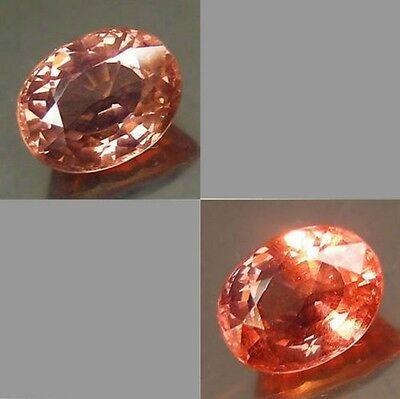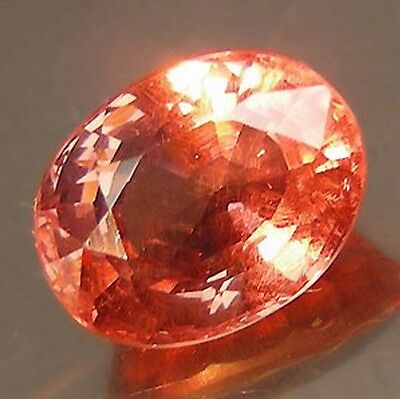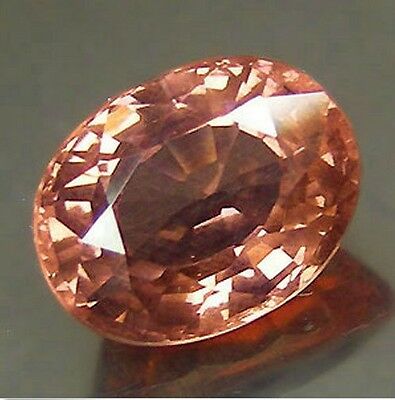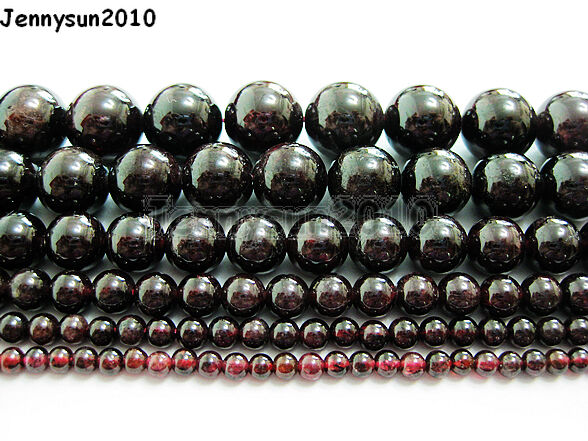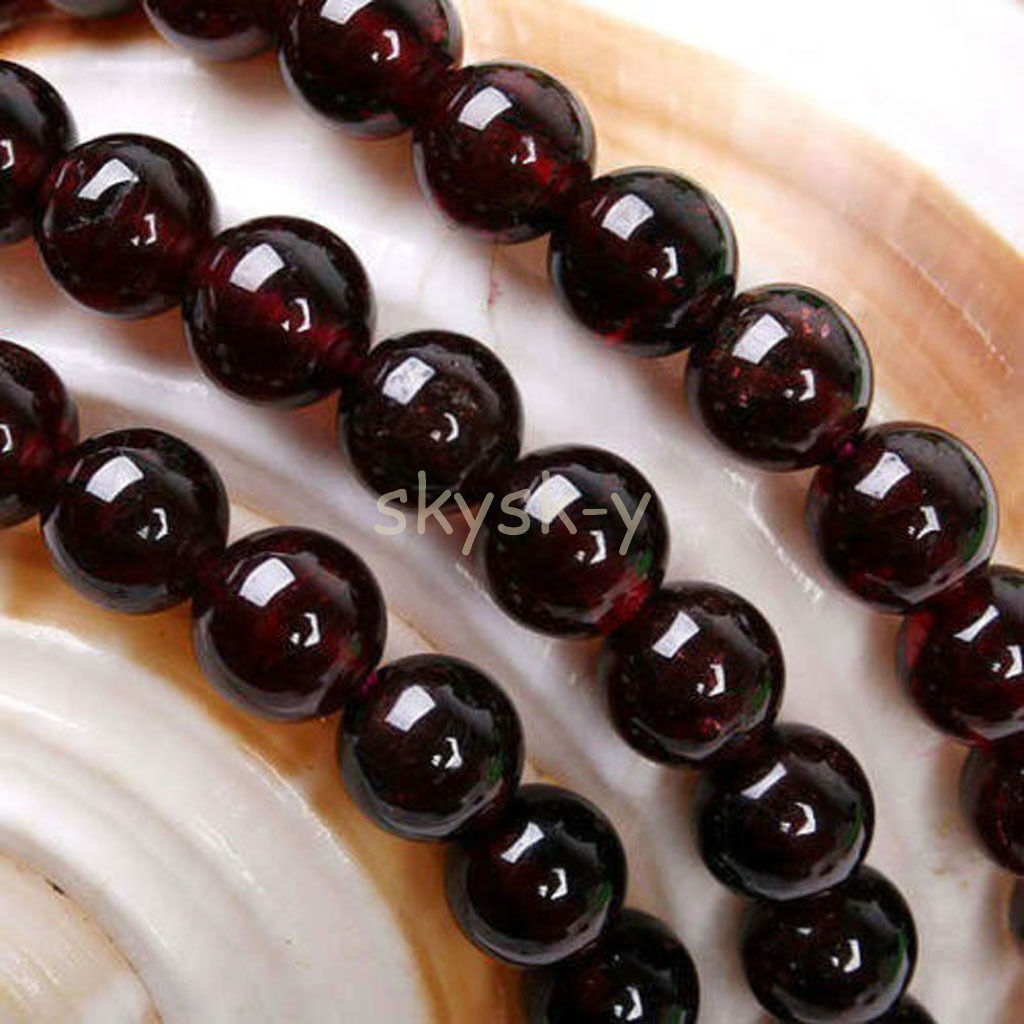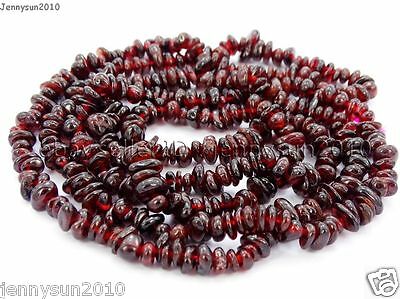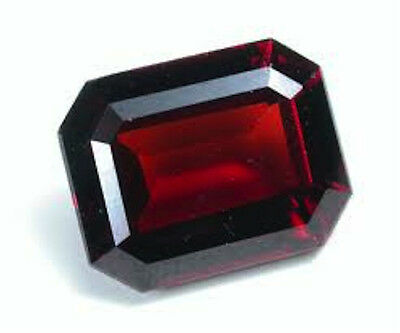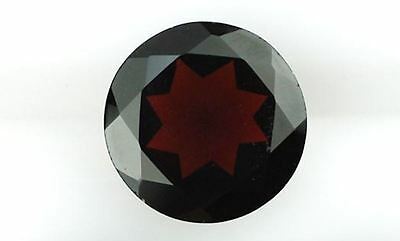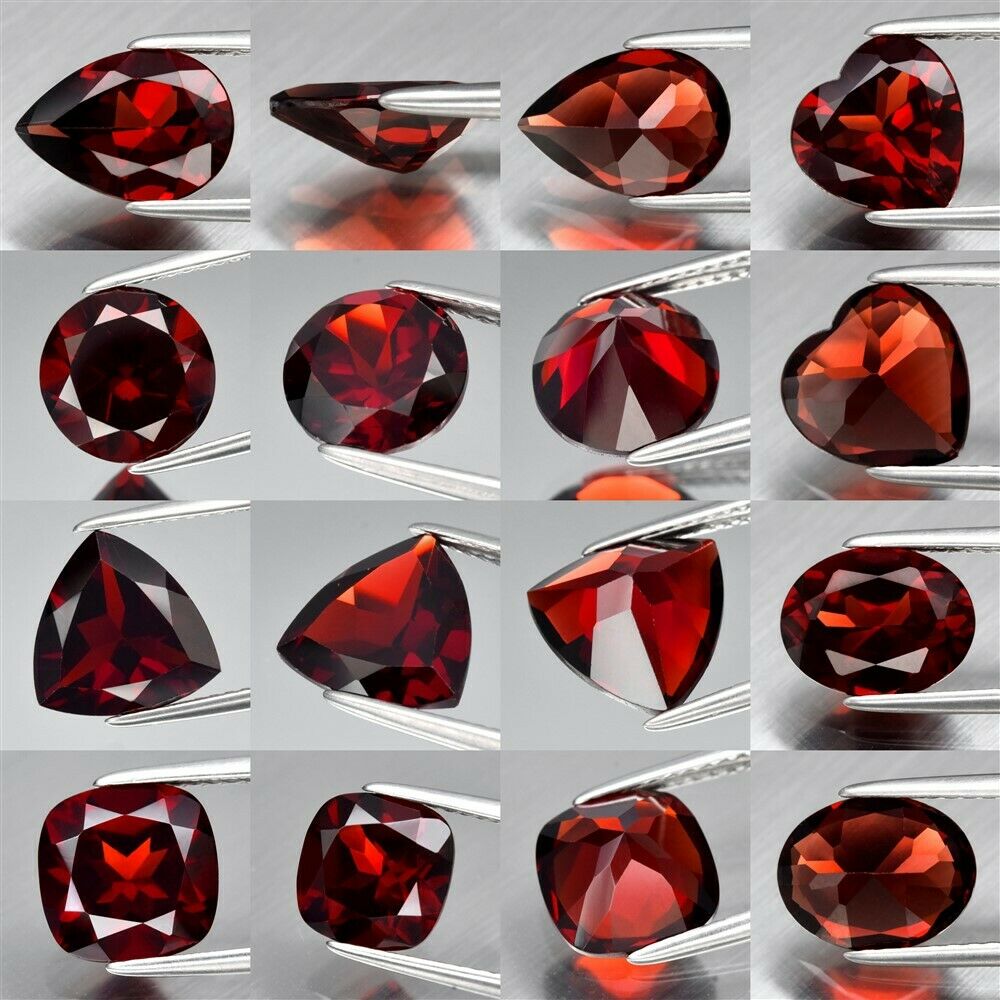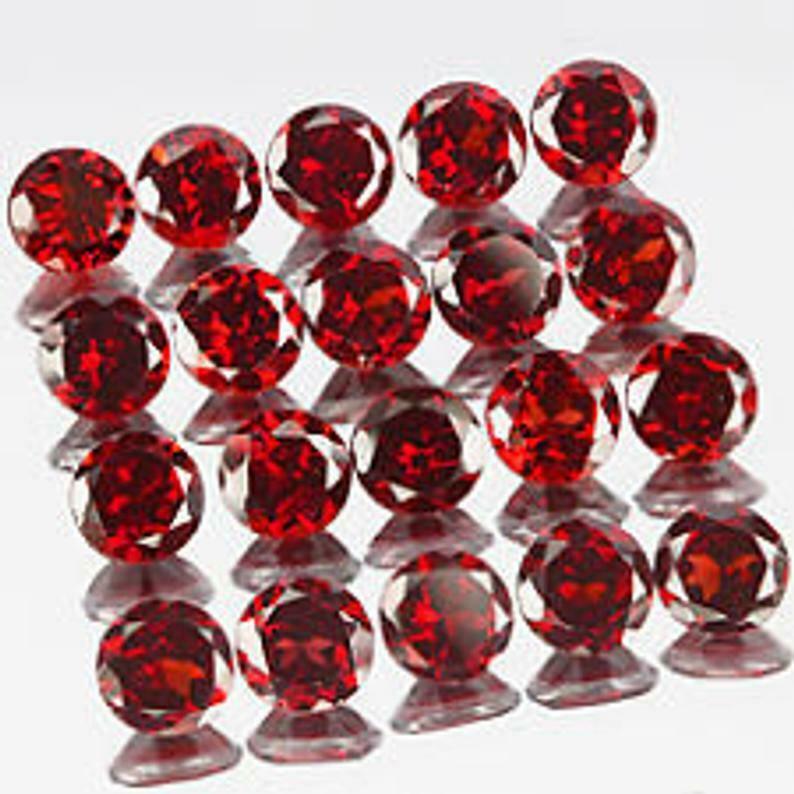-40%
2.18 cts Natural Oval-cut Peach-->Red VVS Malaya Garnet (Tanzania)
$ 143.61
- Description
- Size Guide
Description
2.18 cts Natural Oval-cut Peach-->Red VVS Malaya Garnet (Tanzania)New without Tags. This gem has never been used/placed/set in a setting.
It is utterly undamaged, unmarred and in perfect condition as expected of NWOTags.
I have included a Malaya Garnet article below for your appreciation and enjoyment.
Summary from below:
"
Malaya (malaia) garnet
is one of the rarer and more interesting 'hybrid' varieties of garnet." ... "
Research has now shown that its composition can be highly variable, ranging anywhere from 2 to 94% spessartite, 0 to 83% pyrope, 2 to 78%
almandine
, 0 to 24%
grossular
and 0 to 4% andradite.
" ... "
Since its discovery, the production and mining of malaya garnet has been very irregular, and because of its rarity, it is highly prized by gem collectors. Larger specimens, especially those over 3 to 5 carats, increase in value substantially and can demand very high premiums.
" ... "
Malaya garnet is considered to be a 'type II' stone according to the GIA's colored stone clarity scale. This means that most malaya garnet will exhibit some visible inclusions, typically rutile, pyrite or apatite.
" ... "
Malaya garnets have remarkable fire and dispersion.
" ... "
Like most garnets, malaya garnet is typically never treated or enhanced in any way.
"
Type: Natural Malaya Garnet
(personally confirmed as a Genuine Malaya Garnet by digital refractometer (RI=1.772), dichroscope, polariscope, spectroscope, UV short&long-wave light, measured Specific Gravity=3.71) -- gemgym
Color: Peach->Red
(though this gem is mildly and gently color-changing, I wouldn't classify it as Color-Changing) -- gemgym
Shape: Oval-cut
Dimensions: 7.30mm x 6.40mm x 4.70mm
Weight: 2.18 cts
Luster: Top Fire
Clarity: VVS
"
Malaya garnet is considered to be a 'type II' stone according to the GIA's colored stone clarity scale. This means that most malaya garnet will exhibit some visible inclusions, typically rutile, pyrite or apatite.
"
Hardness: 6.5-7.5 rating on the Mohs Scale
Treatment: Not Heated, Not Enhanced, Not Treated
"
Like most garnets, malaya garnet is typically never treated or enhanced in any way.
"
Origin: Tanzania
She came as an infant, moody and maddeningly fickle.
We never knew what would set her towards
Peach or Red
.
Howsoever dynamic though, she is beautiful for it.
But now, she bristles and brays with boredom.
She's matured beyond the Elderly Two-of-Us.
We understand and will send her to who will love her away.
We are an eBay eStore enterprise focused on selling mostly Loose Natural Gemstones. Stay here, look around and learn. Via eBay Messaging, ask us questions, make an offer, and otherwise discuss your wishes, concerns and hopes. We pride ourselves as good-spirited folks having fun and doing our best to share the joy of Nature's most beautiful and enduring literal treasure -- Natural Gemstones. Expect to find us cheerful and trustworthy, and we will expect the same of you. For us, Negative FeedBack as a means of coercion is never needed and only degrades everyone's enjoyment in what should otherwise be a fun shopping experience. And finally, please enjoy my work as eBay's First (unofficial) Gemstone Poet. -- gemgym
==========================================================
Malaya Garnet Gemstone Information
About Malaya Garnet - History and Introduction
Malaya (malaia) garnet
is one of the rarer and more interesting 'hybrid' varieties of garnet. It is primarily a mix of
pyrope
and
spessartine
, which was first discovered in the 1960s. It was discovered in the Umba River Valley bordering Tanzania and Kenya, which remains the primary source for malaya garnet. GIA classifies malaya garnet as only a pyrope-spessartite species, but this may not be the case for all malaya garnet. For the most part, malaya garnet has been considered a variety of pyrope, since most tested specimens contained higher percentages of pyrope as their primary component. However, over the years, many malaya garnet specimens were discovered to contain equal parts of both spessartite or almandine. In some cases, stones also contained minor traces of grossular and andradite. Research has now shown that its composition can be highly variable, ranging anywhere from 2 to 94% spessartite, 0 to 83% pyrope, 2 to 78%
almandine
, 0 to 24%
grossular
and 0 to 4% andradite.
The term "malaya" was derived from a Swahili word meaning 'outcast' or 'prostitute'. Miners gave it this name because when it was first discovered, local dealers wouldn't buy it, simply because it didn't fall into any of the standard garnet categories; thus, it was cast aside. The first findings were believed to be a type of spessartite and they were often mined and mixed with parcels of
rhodolite garnet
. Since its discovery, the production and mining of malaya garnet has been very irregular, and because of its rarity, it is highly prized by gem collectors. Larger specimens, especially those over 3 to 5 carats, increase in value substantially and can demand very high premiums.
Malaya Garnet
Click to enlarge
Identifying Malaya Garnet
Malaya garnet's refractive index and specific gravity can overlap that of grossular, and materials can even form with near identical colors making them very difficult to distinguish from one another. Thus, identification of malaya garnet normally requires chemical analysis. Malaya garnet has excellent hardness of 7-7.5 on the Mohs scale and often exhibits needle-like inclusions which can help distinguish malaya garnet from other gems. Like all garnet, malaya has a very distinct cubic crystal structure; the rhombic dodecahedral faces are a hallmark of garnet gemstones. Other distinguishing aspects include lack of cleavage, fluorescence and lack of pleochroism, since garnet is singly refractive.
Malaya Garnet; Origin and Gemstone Sources
Malaya garnet is found primarily in East Africa's Umba River Valley which borders northern Tanzania and Southern Kenya. In 1993, discoveries of similar material were also reported in Southern Tanzania. There have also been deposits found in both Madagascar and Sri Lanka (Ceylon).
Buying Malaya Garnet and Determining Malaya Garnet Gemstone Value
Malaya Garnet
Color
Malaya garnet occurs in a variety of unique and interesting colors including pinkish-orange, reddish-orange and yellowish-orange, all with varying light and dark tones. The rarest malaya colors include honey-peach, cinnamon, pinkish-orange and near-colorless. Orangey stones are typically rarer than reddish, and stones with lesser amounts of brown are considered more desirable. Malaya garnet is known to exhibit scintillating flashes of red, incomparable to any other type of garnet. The cause of the color is manganese and sometimes iron.
'Umbalite garnet' is a name used for malaya garnet from the Umba Valley that exhibits a red color with a slight hint of orange. 'Imperial garnet' is a trade name used to refer to bright pinkish-orange stones which are neither too dark nor too pale. Some pale pink specimens may exhibit a reddish or gold color change. Some orange-red stones may also exhibit a brownish-orange color change. Color change malaya garnet is still classified as malaya garnet based on identical chemical composition.
Malaya Garnet
Clarity and Luster
Malaya garnet is considered to be a 'type II' stone according to the GIA's colored stone clarity scale. This means that most malaya garnet will exhibit some visible inclusions, typically rutile, pyrite or apatite. The most common inclusions are small needle-like clusters of rutile. When polished, malaya garnet has an attractive glass-like (vitreous) luster.
Malaya Garnet
Cut and Shape
Malaya garnets have remarkable fire and dispersion. This means that they are most often faceted rather than cut en cabochon. Any cut and shape that maximizes fire and minimizes color darkness is ideal. The most effective shapes for this include cushions, rounds and ovals.
Malaya Garnet Treatment
Like most garnets, malaya garnet is typically never treated or enhanced in any way.
